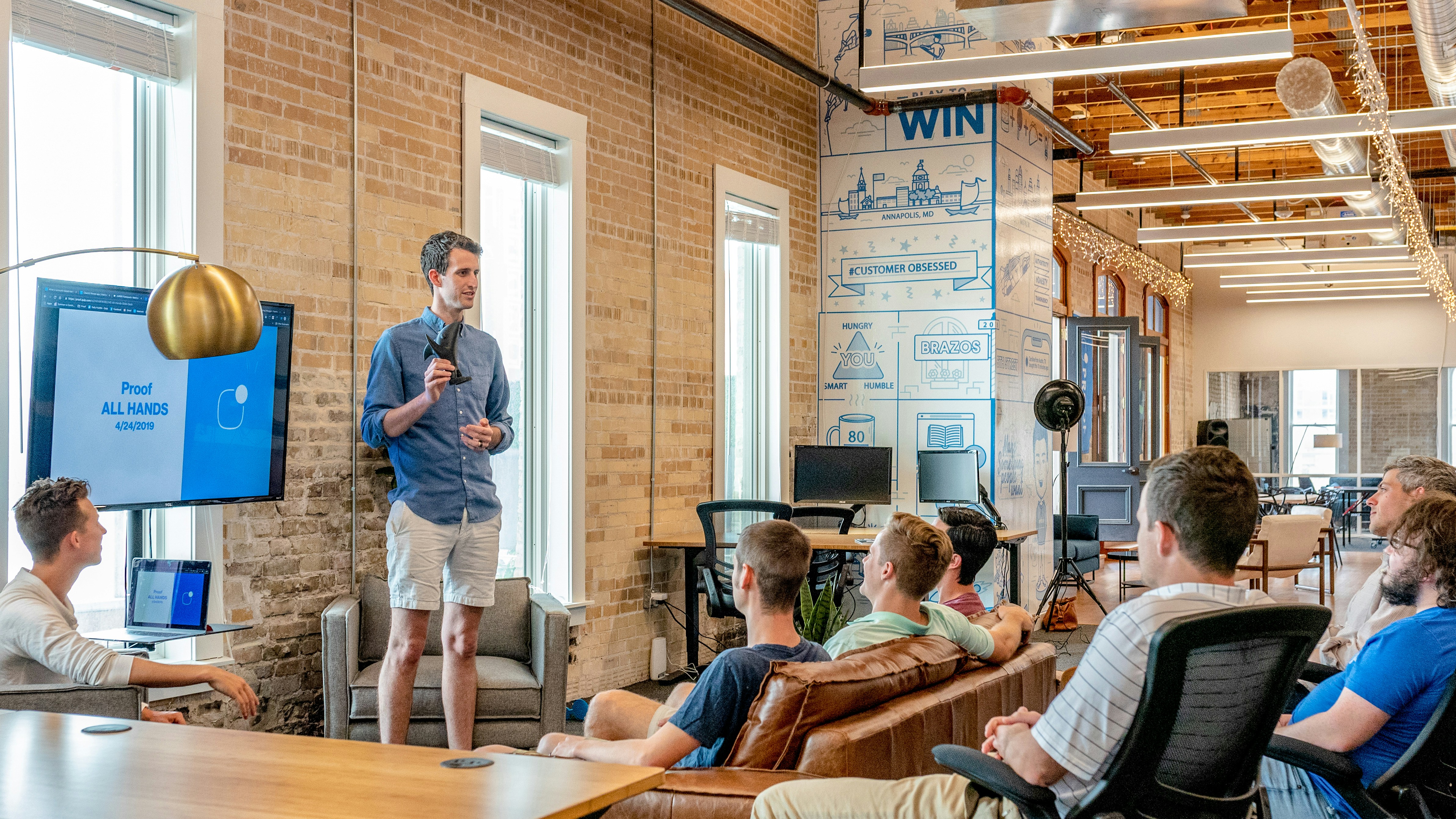- October 8, 2025
- Blog & Newsletters
- Comments : 0
Industry 4.0: How Central India’s MSMEs Are Powering the Next Manufacturing Revolution
Central India, long the bedrock of our nation’s industrial might, is standing at the precipice of a monumental transformation. The clatter of traditional machinery is harmonizing with the silent, powerful hum of data, automation, and artificial intelligence. This is the dawn of Industry 4.0, a revolution that is not just reshaping factory floors but redefining the very essence of manufacturing. For the Micro, Small, and Medium Enterprises (MSMEs) that form the backbone of Madhya Pradesh’s economy, this is not merely a trend; it is a critical juncture. The leap towards smart manufacturing is the single most important step they can take to ensure global competitiveness, operational excellence, and sustainable growth. This shift is creating unprecedented opportunities for tech startups to innovate and for the entire entrepreneurial ecosystem to thrive.

What’s Happening: The National Push and Local Momentum
The fourth industrial revolution, or Industry 4.0, is characterized by the fusion of digital technologies like the Internet of Things (IoT), AI, robotics, and big data analytics with physical manufacturing processes. This creates ‘smart factories’ where cyber-physical systems monitor operations, make decentralized decisions, and communicate with each other and with humans in real time. Nationally, the momentum is undeniable. The Indian government is aggressively promoting this shift to elevate the manufacturing sector’s GDP contribution to 25%. A NASSCOM report highlights this trajectory, projecting that digital technologies will constitute 40% of total manufacturing expenditure by 2025, a significant jump from 20% in 2021. This indicates a massive market opening up for technology providers and innovators.
In Madhya Pradesh, this national vision is being translated into concrete action. The state’s Industrial Promotion Policy 2025 is designed to create a robust ecosystem for high-value-added manufacturing and to develop world-class industrial infrastructure. Initiatives like the Delhi-Mumbai Industrial Corridor (DMIC), which includes nodes like Vikram Udyogpuri near Ujjain, are creating ‘plug-n-play’ smart industrial cities to attract investment and facilitate the adoption of modern technologies. The state government’s declaration of 2025 as the “Year of Industry” and the upcoming Global Investors Summit in Bhopal further signal a determined effort to position Madhya Pradesh as a premier industrial hub.
Why It Matters: The Stakes for Founders, Investors, and Mentors
For founders, the Industry 4.0 wave is a gold rush of opportunity. The challenges faced by traditional MSMEs—quality control, efficiency bottlenecks, supply chain disruptions, and rising operational costs—are all problems that tech startups can solve. From developing AI-powered predictive maintenance tools to creating affordable IoT sensors for real-time monitoring, the demand for innovation is immense. A McKinsey report found that Industry 4.0 implementation could boost operational earnings for Indian companies by up to 40%, showcasing a clear value proposition. This is not just about improving existing processes; it’s about creating entirely new business models, such as robotics-as-a-service or data-driven supply chain financing.
For investors, this sector offers a chance to back ventures with tangible impact and strong growth potential. Unlike some consumer-tech sectors, B2B startups in smart manufacturing address fundamental economic needs, often leading to stickier clients and more resilient revenue streams. The government’s focus on making India a global manufacturing hub provides a powerful tailwind for this sector. For mentors within the TiE network, the role is critical. Guiding startups to navigate the complexities of industrial sales cycles, understand the specific pain points of MSMEs, and build scalable, secure technology solutions is essential for their success.

How Startups Can Respond: An Actionable Framework for Central India
Startups in Central India are uniquely positioned to capitalize on this trend, given their proximity to major industrial clusters like Pithampur, Mandideep, and Malanpur. The key is to develop solutions that are not just technologically advanced but also accessible, affordable, and easy to implement for MSMEs, who often face capital and skill constraints.
Here is a structured framework for aspiring entrepreneurs in the smart manufacturing space:
| Focus Area | Opportunity for Startups | Key Technologies | Target Market (Local Examples) |
|---|---|---|---|
| Operational Efficiency | Develop solutions for predictive maintenance, energy monitoring, and automated quality control. | IoT Sensors, AI/ML Algorithms, Computer Vision | Auto ancillary units in Pithampur, pharmaceutical manufacturers in Mandideep. |
| Supply Chain & Logistics | Create platforms for real-time tracking, inventory management, and demand forecasting. | Blockchain, IoT, Data Analytics | Food processing and textile companies across Madhya Pradesh. |
| Workforce Enablement | Build AR/VR tools for remote assistance and employee training, and no-code automation platforms. | Augmented Reality (AR), Virtual Reality (VR), SaaS | Large manufacturing plants and skill development centers. |
| Digital Twinning | Offer services to create virtual replicas of factories and processes for simulation and optimization. | 3D Modeling, Simulation Software, IoT | Heavy engineering and electronics manufacturing clusters. |
The Local Lens: Indore and Bhopal as Emerging Hubs
The entrepreneurial ecosystems in Indore and Bhopal are already buzzing with activity in this domain. Institutions like IIT Indore are at the forefront, with incubators like the IITI DRISHTI CPS Foundation actively supporting startups in the Industry 4.0 space. Their portfolio includes ventures like Presage Insights, which provides AI and IoT-based predictive maintenance tools, and Flovation Technologies, which is developing cost-effective automation software for MSMEs. These startups are not just building technology; they are co-creating solutions with local industries, ensuring product-market fit.
Coworking spaces like Workie and mentorship platforms provided by organizations like TiE Indore are creating a collaborative environment where tech talent can connect with industrial expertise. The presence of established IT firms like CIS, Yash Technologies, and Infobeans in Indore provides a deep talent pool. This synergy between academia, industry, and the startup community is crucial. As a local saying goes, “Gada murda ukhaadne se koi fayda nahi” (There’s no use digging up the past). It’s about looking forward and building the future, and that is precisely what is happening in the tech corridors of Indore and Bhopal.
Takeaways: A TiE Mentoring Perspective
From a TiE mentoring standpoint, the rise of smart manufacturing presents a clear mandate: we must foster a new generation of entrepreneurs who are both tech-savvy and deeply understand the nuances of the industrial sector. Our role extends beyond just providing funding access. Through programs like TiE Nurture, we connect early-stage founders with seasoned industry veterans who can help them avoid common pitfalls. The key actions for startups are clear:
- Start with a Niche: Don’t try to boil the ocean. Focus on solving one specific, high-value problem for a particular type of manufacturer.
- Build for Brownfield: Most MSMEs are ‘brownfield’ operations, meaning they have existing machinery. Solutions must be retrofittable and integrate with legacy systems.
- Prioritize ROI: Industrial clients are not swayed by hype. Clearly demonstrate how your solution saves money, reduces downtime, or improves quality. A pilot project with a clear success metric is your best sales tool.
- Leverage the Ecosystem: Engage with institutions like IIT Indore, connect with mentors at TiE, and participate in events like TiE Con MP to build your network and find your first customers.
The journey of transforming a traditional factory into a smart one is complex. It requires a change in mindset, not just technology. This is where the TiE community, with its vast reservoir of experience, can be a powerful catalyst for change. We invite founders, industry leaders, and investors to join us in this mission. Become a TiE Charter Member and help shape Central India’s industrial future.
Conclusion: Forging Central India’s Tech-Powered Industrial Future
The convergence of manufacturing and technology is not a distant future; it is happening now, in the industrial heartland of India. As global supply chains reconfigure, there is a historic opportunity for India, and specifically for states like Madhya Pradesh, to become a world-class manufacturing destination. This will not be achieved by relying on old methods. It will be powered by the innovation, agility, and problem-solving spirit of startups. By embracing Industry 4.0, Central India’s MSMEs can leapfrog from being followers to leaders, creating a resilient, efficient, and globally competitive industrial ecosystem. The path is challenging, but with collaborative efforts from government, industry, academia, and organizations like TiE, the region is perfectly poised to forge a prosperous, tech-powered future.




